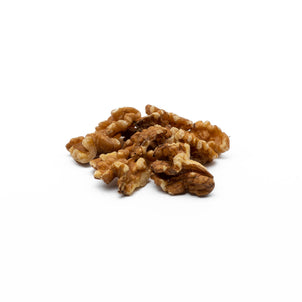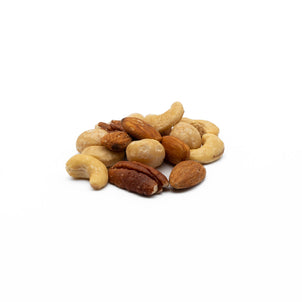Nuts and Allergy
Nuts and allergy
Tree nuts such as almonds, Brazil nuts, cashews, chestnuts, hazelnuts, macadamias, pecans, pine nuts, pistachios and walnuts are full of beneficial substances for good health. Despite this, tree nut allergies are a common food allergy in infants and children that can persist into adulthood. If you have an allergy to tree nuts, it is important you know how to manage it correctly.
How many people are affected by nut allergy?
Data on the prevalence of nut allergies, particularly tree nut allergies, is limited. Self-reported allergies in primary school children show that 1.8-2% are allergic to tree nuts. Among adults, studies suggest that 1.1-2% of the population is affected.
How are tree nut allergies diagnosed
A skin prick test, or Radioallergosorbent test, conducted by an Immunologist are the most reliable tools to diagnose tree nut allergies. If you suspect you have a tree nut allergy, ask your doctor for a referral to an Immunologist.
What are the reactions of a nut allergy?
In people with nut allergies, common reactions include:
- Hives (rash and itching on the skin)
- Eczema (red, itchy, inflamed skin)
- Vomiting
Severe symptoms are more uncommon and include:
- Difficulty in breathing, due to swelling of the mouth and throat
- Anaphylaxis – dilation or constriction of blood vessels. This results in swelling which can restrict airways and/or cause a serious drop in blood pressure (anaphylactic shock), which may ultimately cause death.
What is the best treatment for a tree nut allergy?
If you have a known allergy to one type of nut, it is recommended that you avoid all nuts until carefully controlled and administered medical food challenge tests can determine if you are allergic to other nuts. You will require a definite diagnosis and a planned approach that avoids the allergic food. Consultation with an Immunologist and an Accredited Practising Dietitian (APD) who specialises in food allergy is recommended. Reading ingredient labels for all foods and cosmetics is also key. If unsure about the ingredients in a product, do not eat or use it until you have contacted the manufacturer.
Checklist for nut allergies - diagnosed the problem
- Do you have eczema or asthma? You may be at higher risk of food allergies
- Do you have suffer symptoms such as skin reactions or gut problems?
- Avoid those foods which may be responsible for symptoms
- Speak to your GP for referral to an Immunologist for skin prick tests to known allergens
- Undertake medically supervised food challenge tests to assess the extent of our allergy and cross-reactivity between foods to reduce the risk of allergic reactions
- Avoid those foods which you react to
- If eating out, clarify ingredients in dishes with the chef or host
- Make sure those close to you know of your condition
- Carry an EpiPen®kit with you if there is a risk of severe anaphylaxis and make sure your family and friends know how to use it too.
References
This information was provided by Nuts For Life. For further information on nuts and health, refer to www.nutsforlife.com.au
Can’t find what you’re looking for?
Contact us and we'll be more than happy to provide you with the information you require to make decision about nuts in your diet. Additionally, we recommend enquiring with your General Practitioner, particularly when dealing with the addition of nuts to diet when treating specific health problems.










